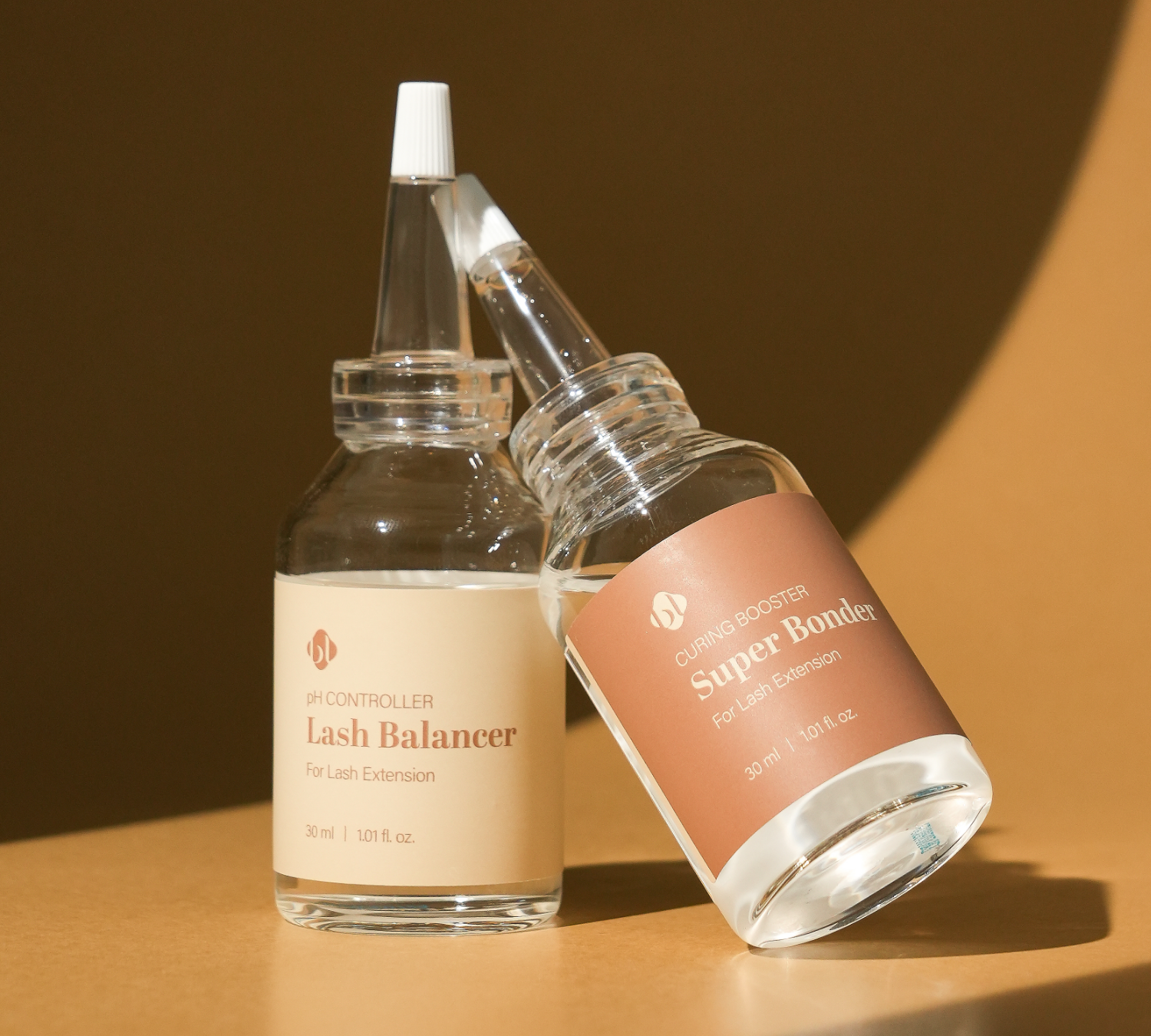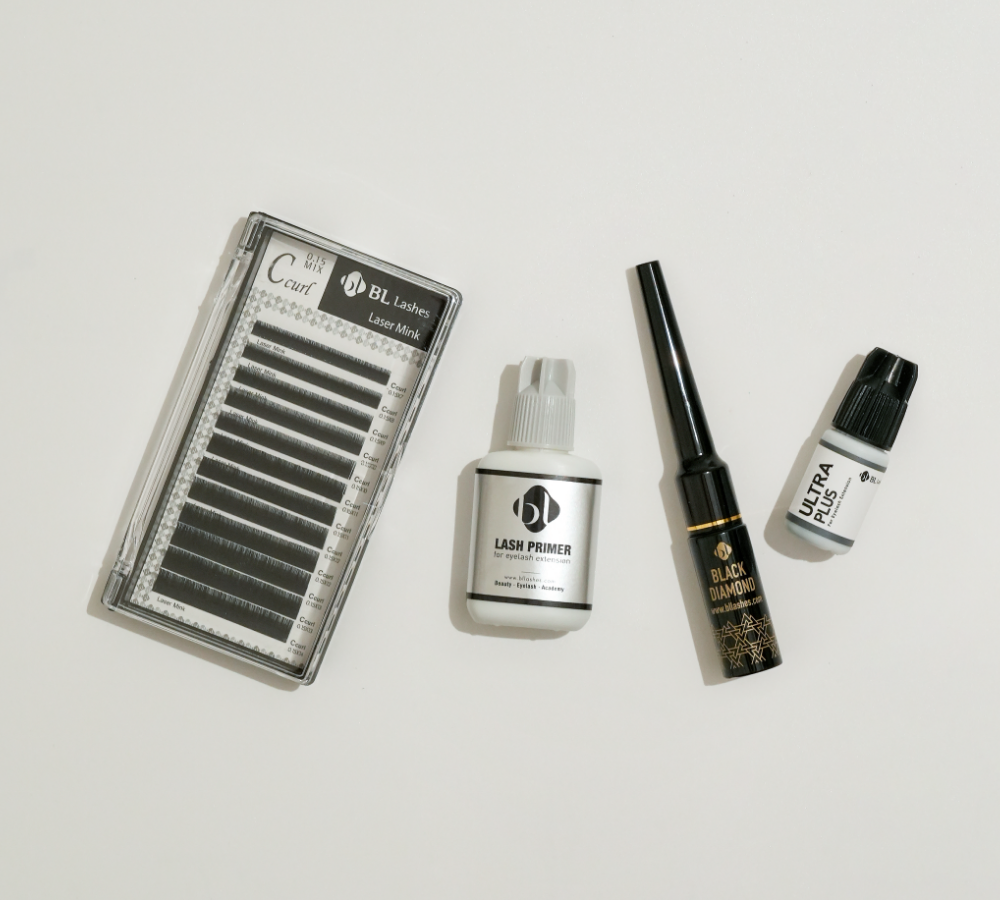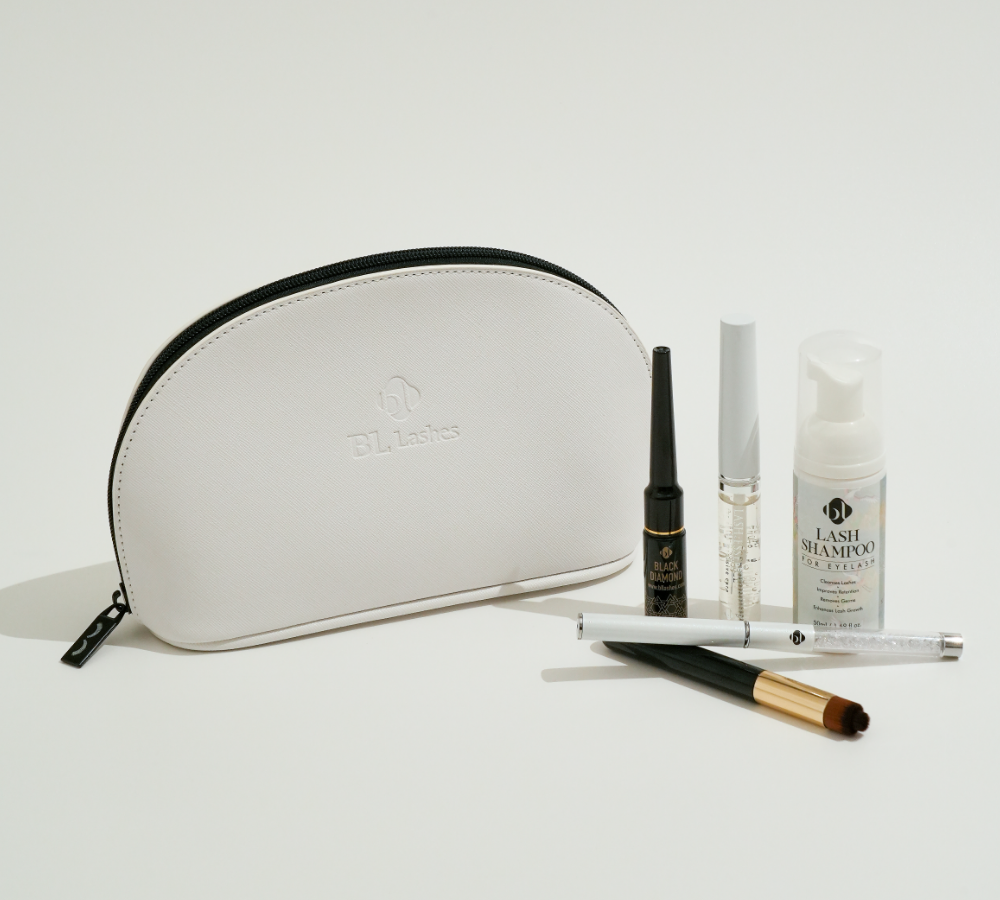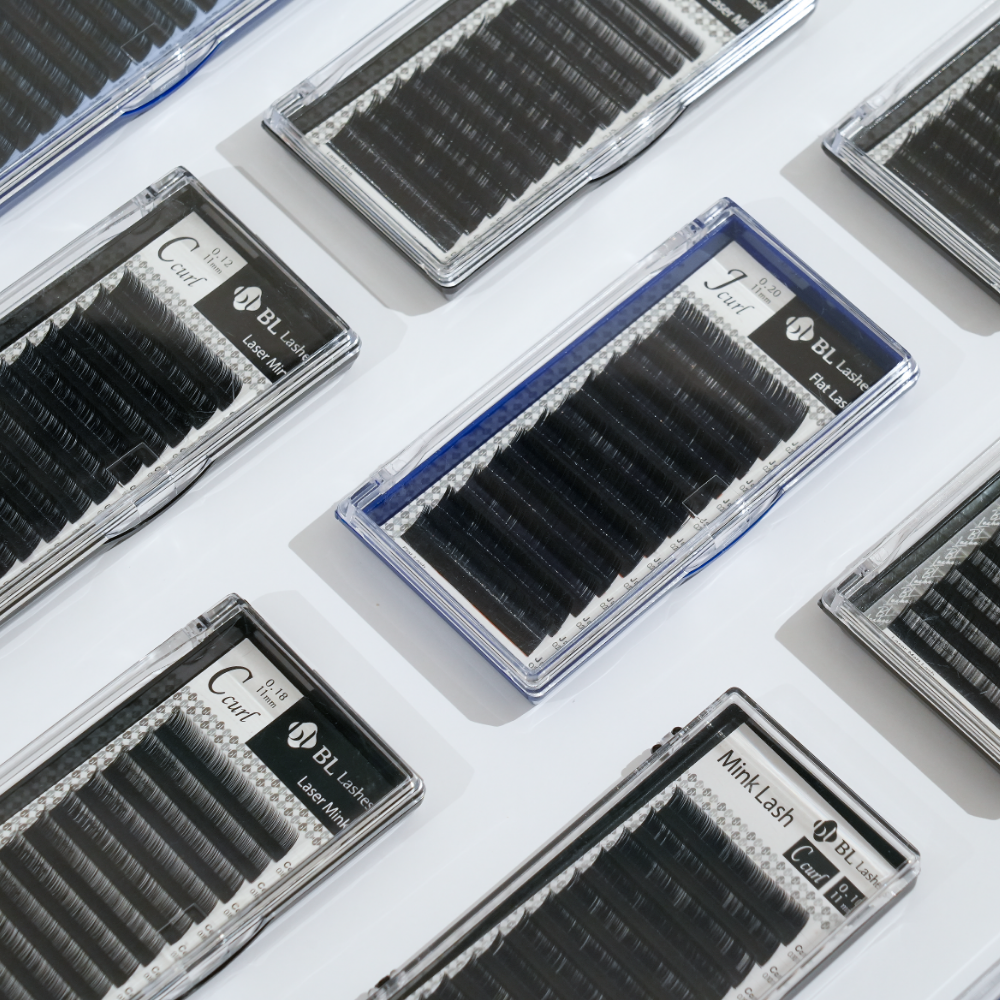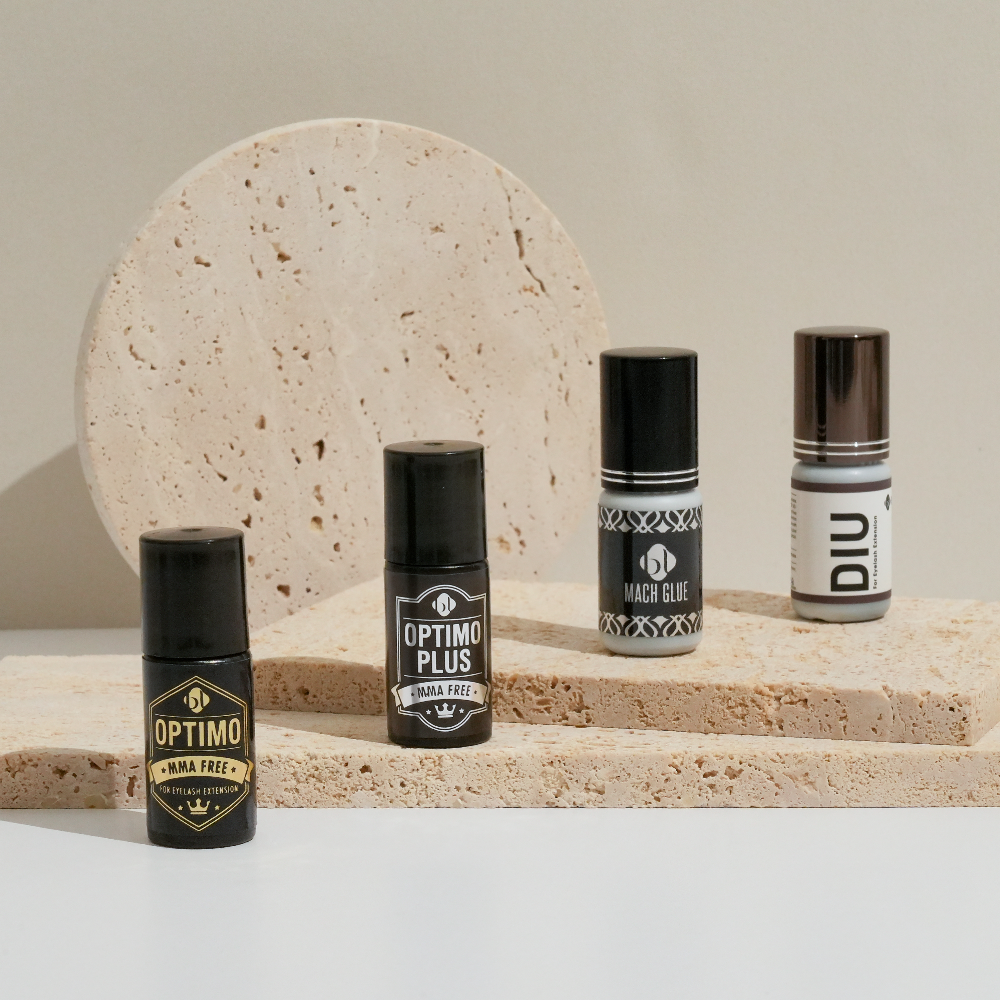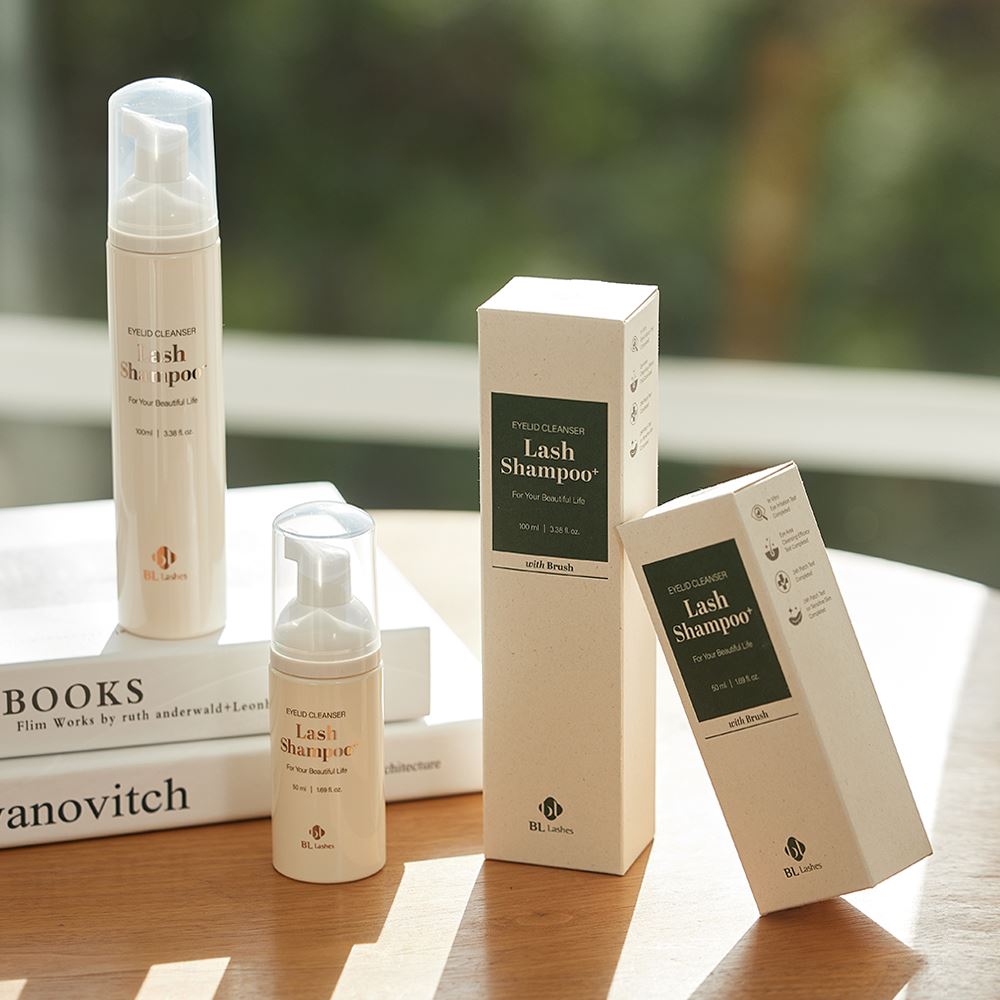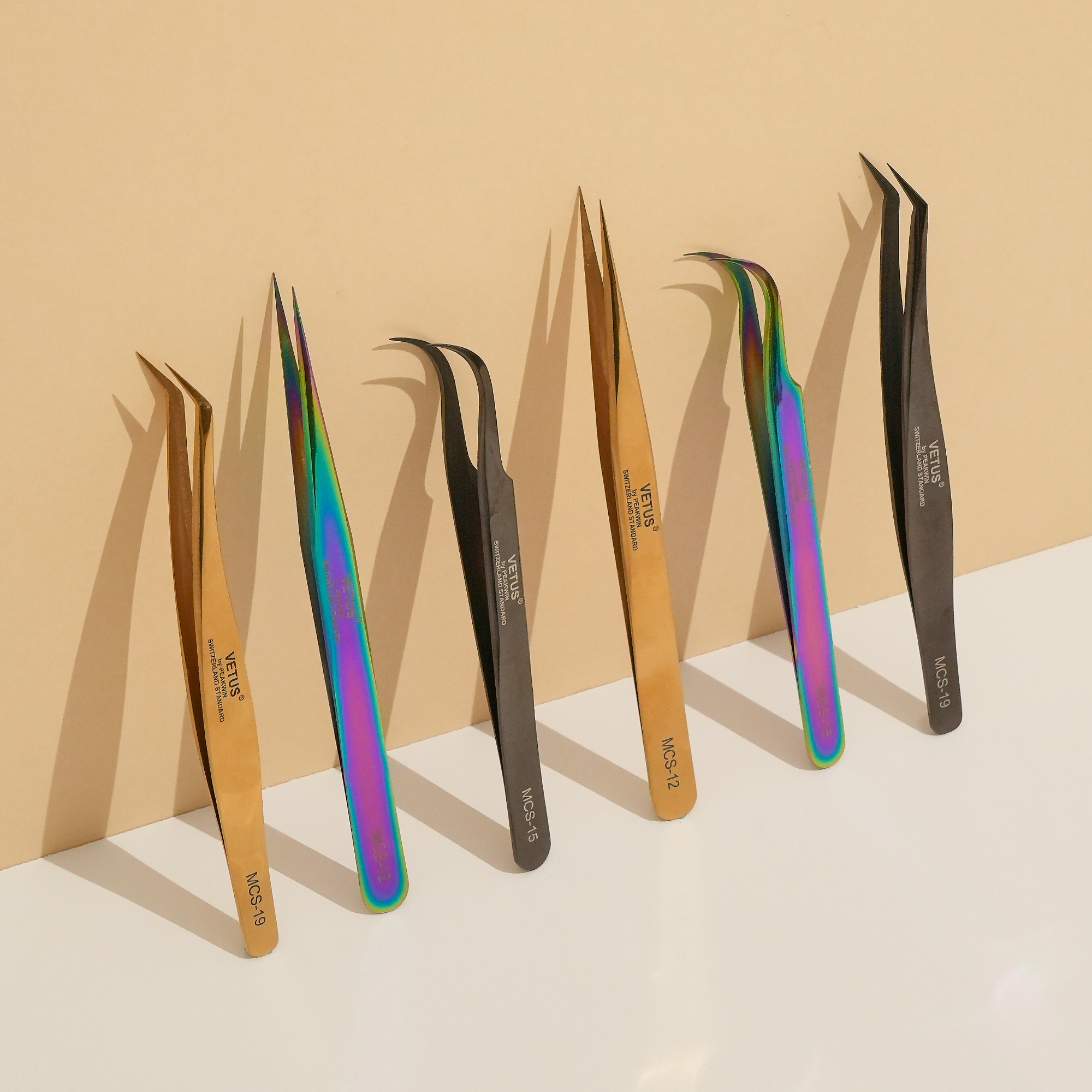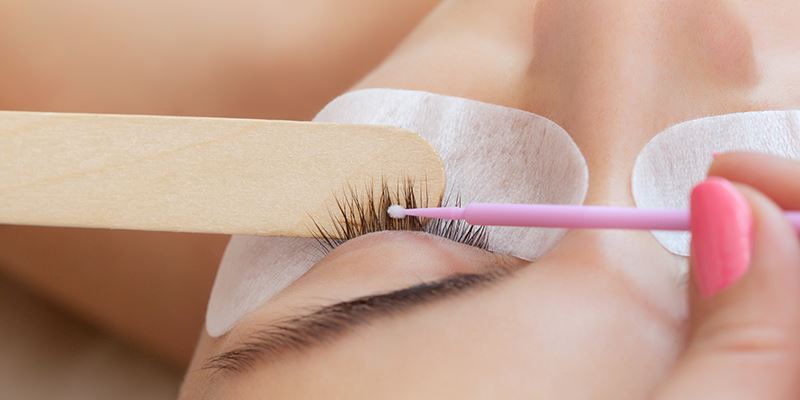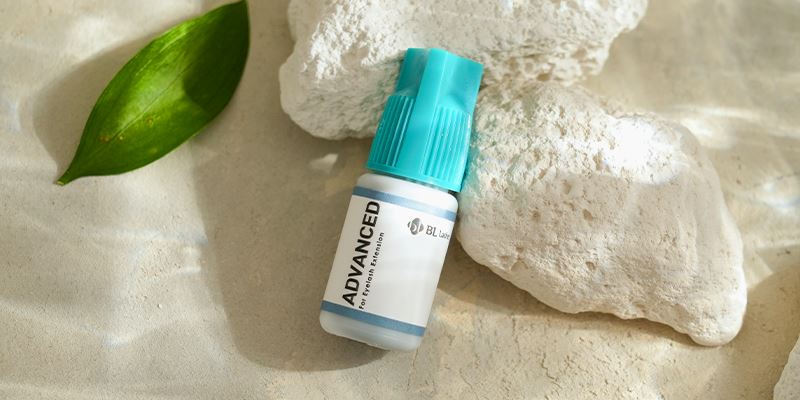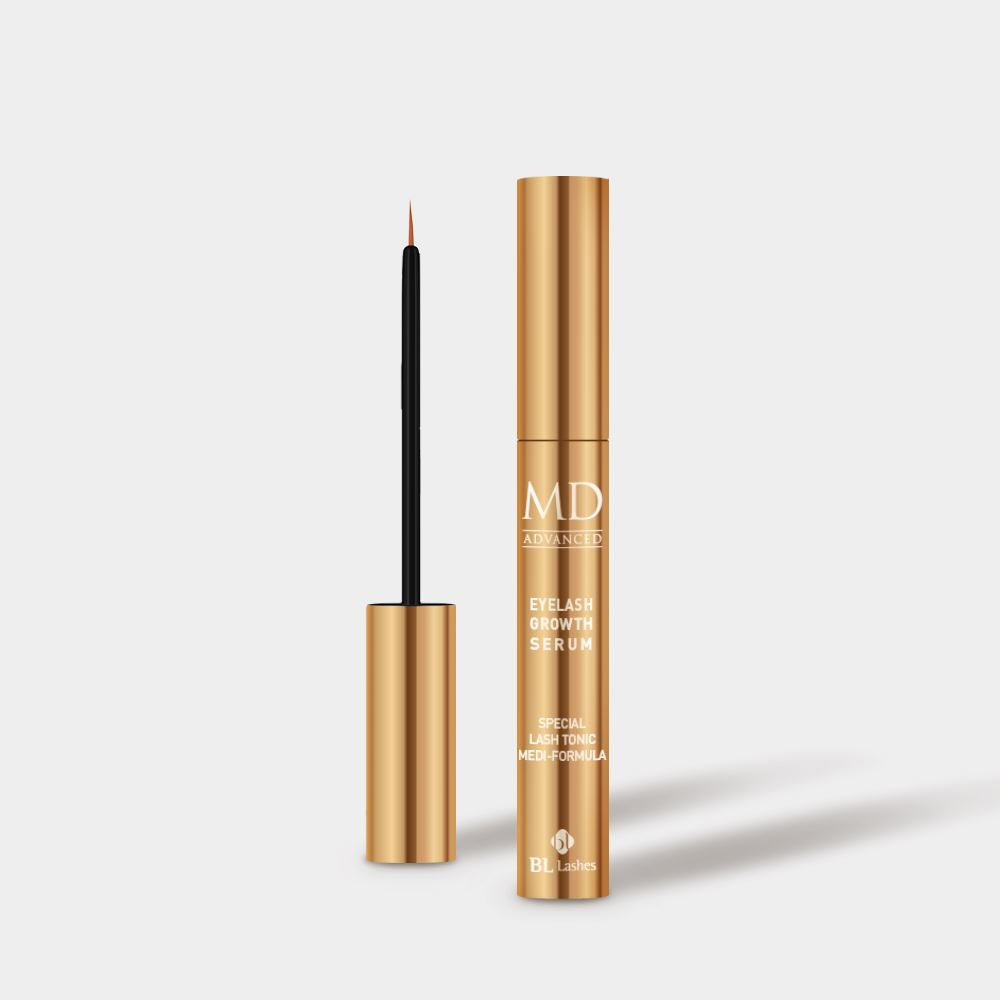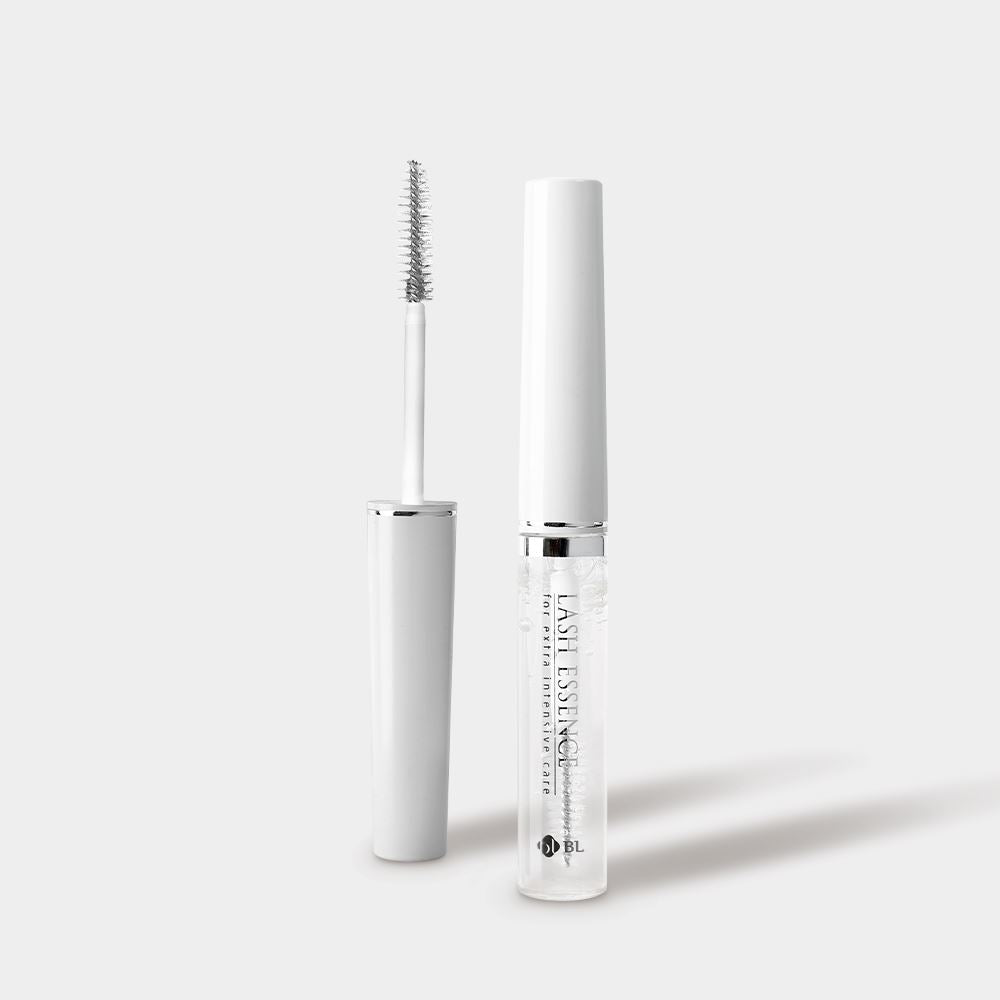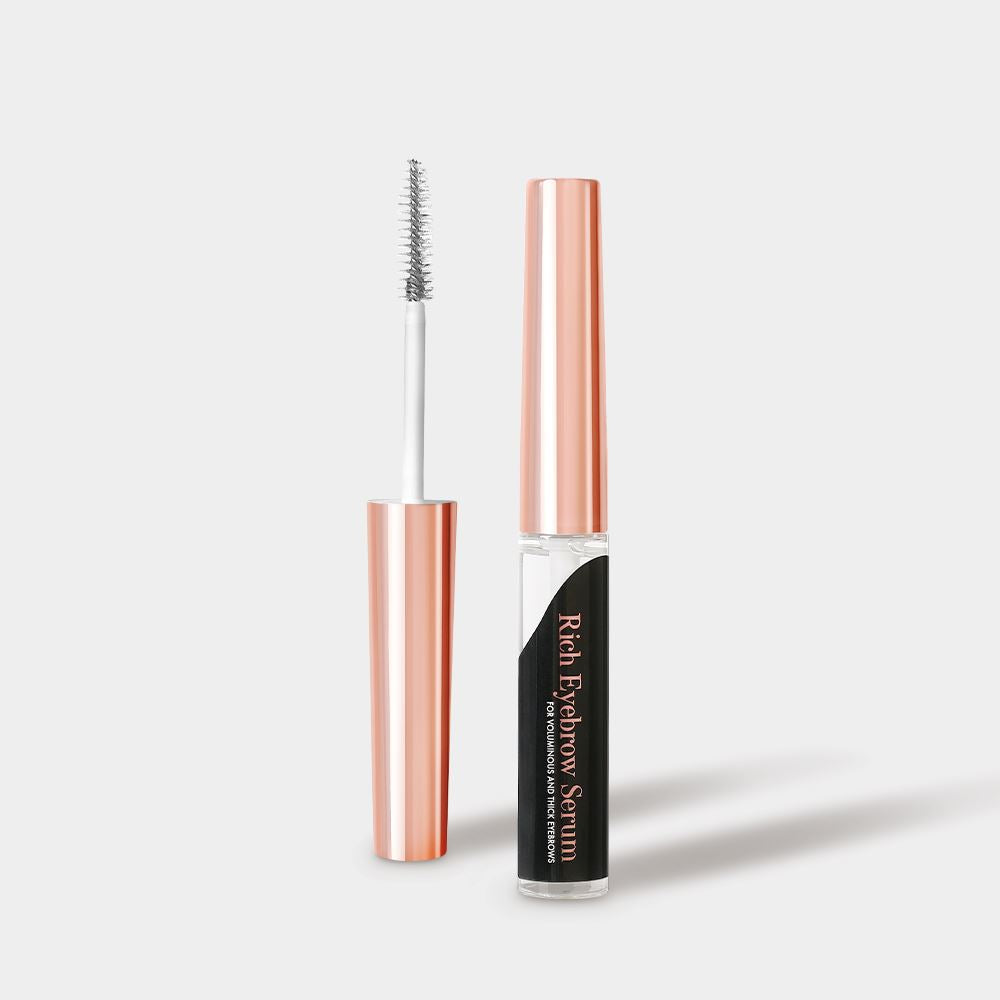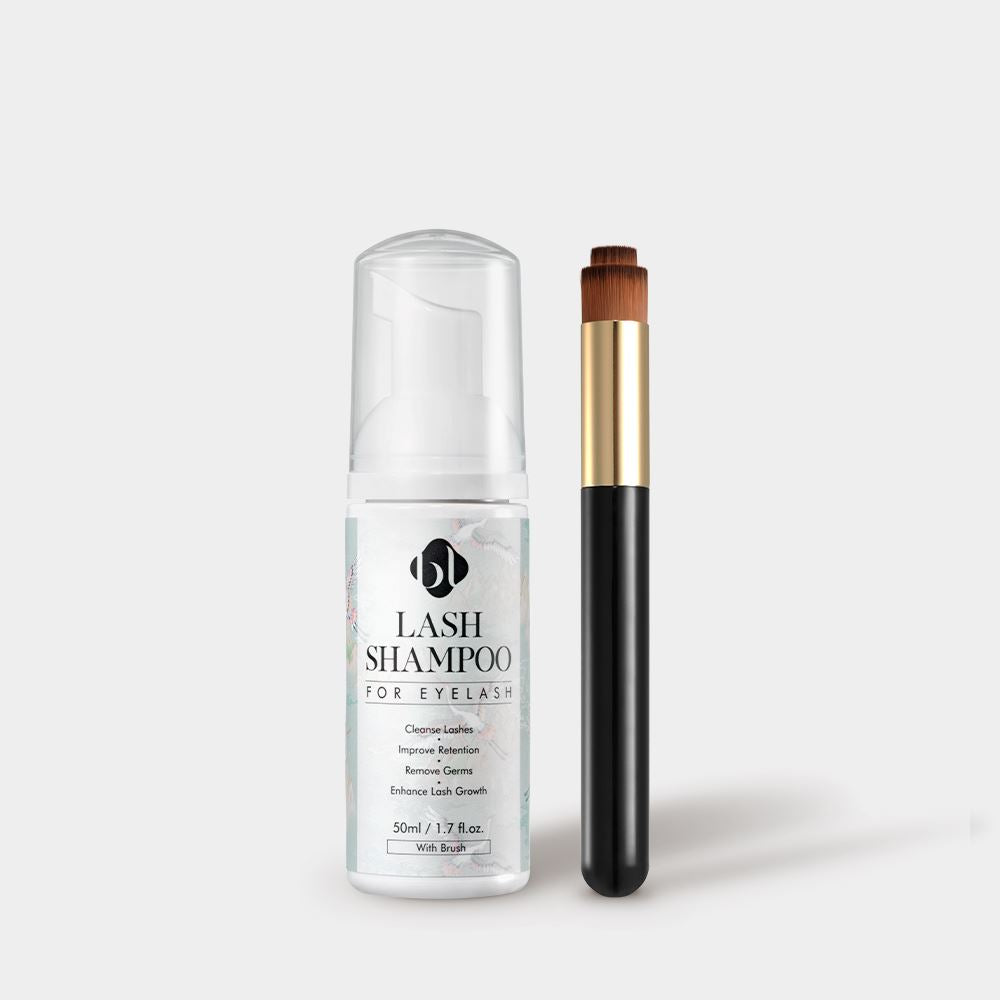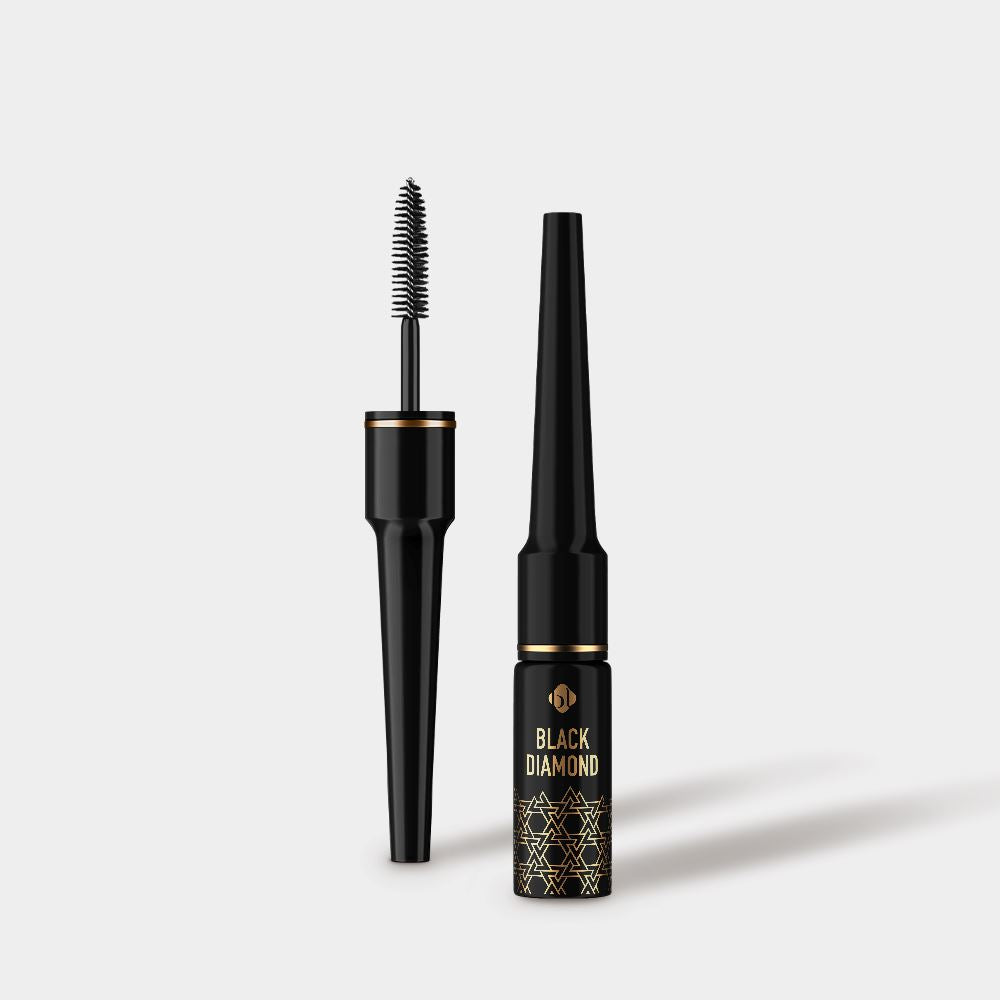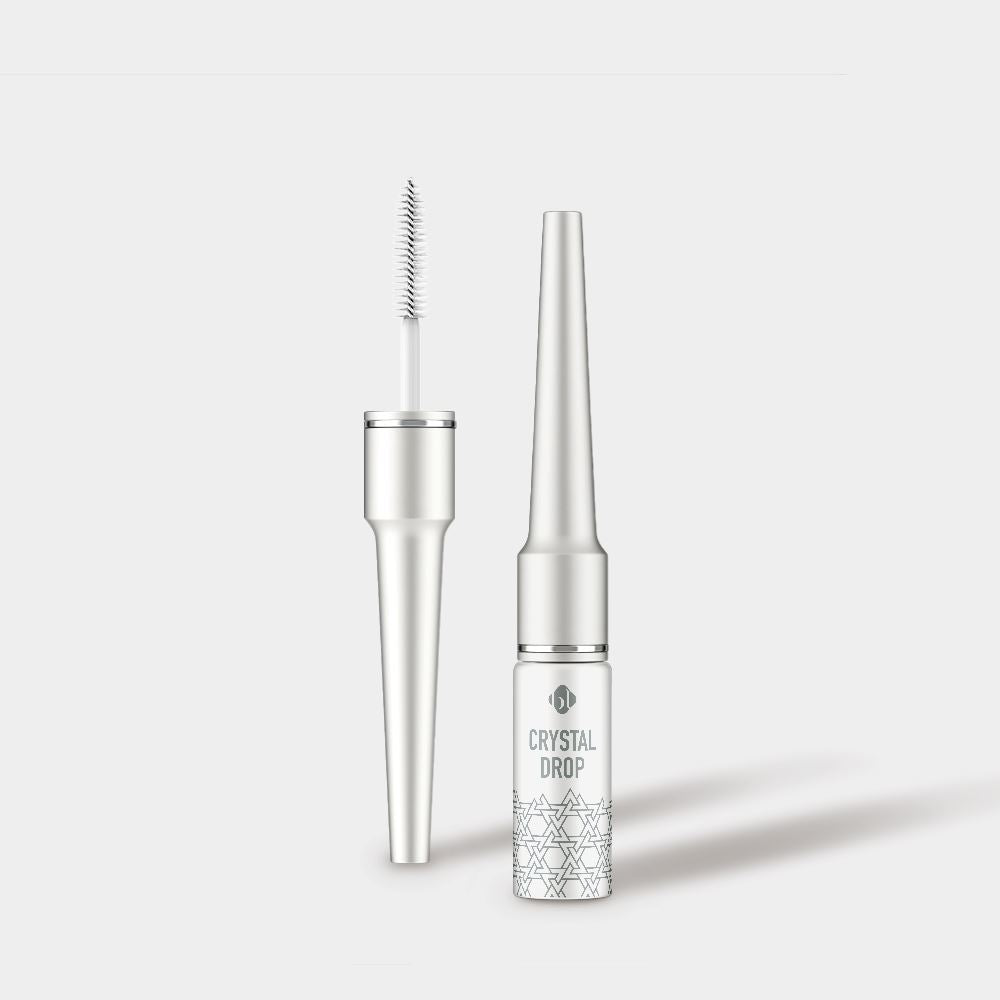We all have been there. That heart-sinking text from a client saying that “my eyes are red and swollen, is this normal?”. Yes, this can happen to any lash technician. What should one do in this situation instead of panicking?
We say, assess, treat, and minimize. This post is about eyelash extension glue allergies and eyelash glue allergy treatment.

What is eyelash extension glue allergy?
An allergy is our body’s reaction to a substance it views as harmful “invader” (like pollen, peanuts, etc) known as allergens. Why certain people's body reacts to certain allergens is unfortunately unknown.
When someone's body starts to react against certain allergens, the human body produces fighters called 'antibodies' to fight these allergens.
The more your body is exposed to an allergen, and your body will fight even harder to the allergen. Hence, more exposure, a more severe allergic reaction can happen.
What is the difference between a sensitive client and a client that is allergic to cyanoacrylate?
The symptoms of lash glue sensitivity and lash glue allergy may look similar, making it difficult to differentiate between the two.
While sensitive clients are those who are stimulated by cyanoacrylate and have symptoms such as congestion/tear/runny nose, etc. These symptoms disappear within 24 hours.
On the other hand, allergic clients are those with swollen eyes and pain who have allergic reactions to the ingredients in the glue. Even if you are not allergic to the lash glue, there are cases when allergic reactions may occur if you have low immunity due to fatigue or pain. Therefore, it's not uncommon for someone to suddenly become allergic to lash glue even if they weren't before. If you have an allergic reaction, you should immediately get the lash extensions removed and see a specialist.
What causes eyelash extension glue allergy?
In most cases, Cyanoacrylate (the main component of lash glue) is known to be the substance that causes the glue allergy.
You’ve probably learned that eyelash extension glue cures by its reaction to humidity (to be specific, Cyanoacrylate does). So, the nature of Cyanoacrylate is to attach itself to any humidity it can find.
And where is the most humid part of our face? Eyes and nostrils. That’s why the glue allergy starts from these places with symptoms like watery eyes and runny nose.
The unfortunate reality is that if a person is allergic to cyanoacrylate, they just are. It is no different from being allergic to pollens, peanuts, or dust.
If your client is only sensitive during regular allergy seasons such as spring or fall, it is recommended to remove the extensions during such seasons. It is sometimes difficult for the body to guess the difference between lash glue and other allergens like pollens and dust. Once the body produces antibodies, the client will be allergic forever. Same thing might happen if the client is under stress which causes more hairs than usual to enter the “telogen” or “resting” phase of the hair growth cycle, which can leave those hairs to fall out along with the extensions.
What are the symptoms of lash extension glue allergy?
Symptoms of glue allergy may vary from person to person but here are the most commonly known symptoms of eyelash glue allergy:
- Stingy, watery eyes
- Runny nose, blocked nose
- Sore throat
- Headaches
- Swelling, itching eyelids
How to treat lash glue allergy
When such an unfortunate situation arises, always remember that you are not a doctor, and the best advice you can give is to direct the clients to medical professionals.
In the case of severe symptoms that persists for more than 24 hours, they should visit urgent care. As licensed professionals, we can only help in advising how to treat mild discomfort and reactions.
How to treat mild symptoms of eyelash extension allergy
- Cold Compress: Put on a cold compress. This is not a treatment but more like a Band-Aid that reduces discomfort.

- Lash Extension Removal: Removing lash extensions straight away is the best solution. In such circumstances, make yourself available for them to come in for a complimentary removal as soon as possible. (See BL Cream Remover)

- Shorten the Fill Times: Rather than getting the lash fills every two to three weeks, cutting down the lash fill time to every week will reduce the chance of sensitivity and reaction.
- Fan the Lashes: The chemicals in the lash extension adhesive that cause sensitivity and reaction go away once the glue cures. For sensitive clients, using a fan during the appointment may be a good idea.
Is lash extension glue allergy dangerous?
While a small percentage of clients develop an allergic reaction to eyelash extension glue, this allergy itself is not especially dangerous. Symptoms will disappear once the eyelash extensions are removed.
However, the allergy might happen again if eyelash extensions are applied even after some time out. (The body keeps a memory of the allergy once developed)
Note that this doesn’t only limit to the clients, and it can also happen to lash artists, too, who are constantly exposed to extension glue fume. Lash artists can develop glue allergy from inhaling strong lash glue fume for a lengthy period of time.
What if my client takes some time off from the lash extension and gets lashes again?
Better not! Unfortunately once the body creates an antibody against an allergen, it won't go away. Your client is likely to have a stronger reaction to eyelash extension glue next time.
Even if your client really wants them, it will not be worth it.
How to prevent eyelash extension glue allergy?
Use an Anti-Allergy Gel

To prevent developing the glue allergy, placing an open jar of the Anti-Allergy Gel is very effective. Anti-Allergy Gel captures the fume (and cyanoacrylate) in this jelly-like jar before it reaches the eyes and nostrils.
Stock sensitive lash extensions glues
Sensitive lash extension glues contain much less amount of Cyanoacrylate than the normal lash glues. They may not be the fastest drying or longest retention glues but they are for the clients with sensitive eyes or immune systems.
BL Advanced Glue and Lily Glue are our most advanced adhesive for sensitive eyes.
Find out what's The Best Lash Extension Adhesive for Sensitive Eyes.

Have a daily checklist
There are things you can do as a lash technician to reduce the potential risk of irritation and allergies. Here are some suggestions on a few things you can do:
- Always perform a patch test before the treatment of a new client.
- Have a reliable ventilation system in your lash room and keep your lash room clean and your tools sanitized.
- Know your products and ingredients of your lash glue. Request lash adhesive MSDS from your retailer.
- Only use fresh lash glues. Throw away glues that have passed their shelf-life.
- The more you know about your client, the more you can reduce possible risks. Ask questions about their past lash extension experiences and current health conditions.
- Use sensitive glue for clients with glue sensitivity.
- Place Anti-Allergy Gel by the work station.
Always consult your clients before the appointment.
One of the leading causes of glue allergy that many technicians overlook is the health condition of the lash client.
If the client’s immune system is weak, she is likely to get infections more frequently and severely than most other people. The weak immune system can be caused by many reasons, such as illness, stress, alcohol, smoking, or unbalanced nutrition.
Therefore, consult with your client thoroughly about her health condition on any noticeable illness, medication, stress, change in sleep pattern before the appointment and make sure to inform the risk of allergy development depends on her condition.
Make sure the safety of your clients is your utmost priority
Ensure that your clients are well-informed and aware of all the risks before the treatment. There is no certainty that you will never encounter a client that has an allergic reaction, so you should familiarize yourself with how to understand the symptoms.
This would help you to stay professional and calm in the most critical moments like this!
Learn more about the care for lash clients and adhesives here:
The Best Lash Extension Adhesive for Sensitive Eyes
Having retention issues since COVID-19?
How to Properly Care for Lash Extension Adhesives?
How to Keep Your Lash Salon Germ and Bacteria Free?
Eyelash Extension Glue and Humidity: A Complete Guideline
Healthy lashing, everyone!


